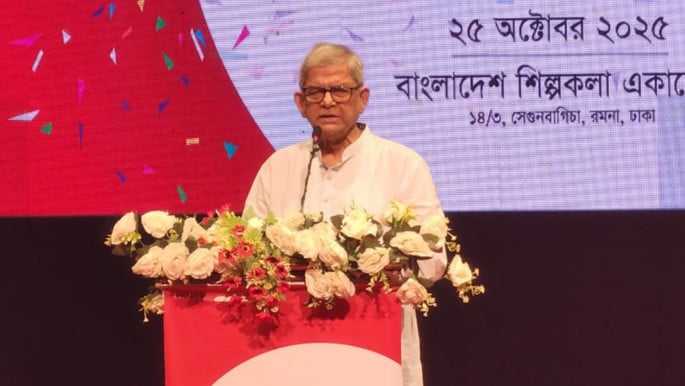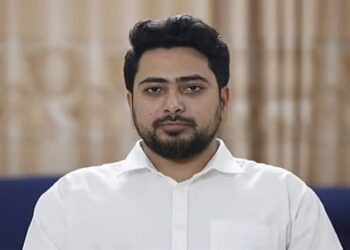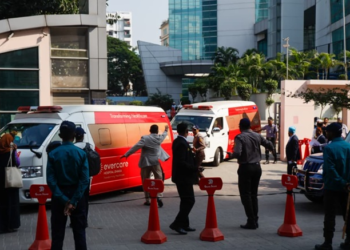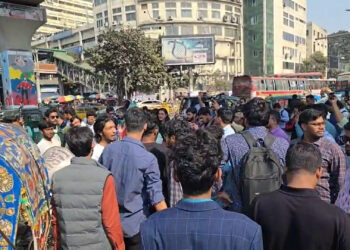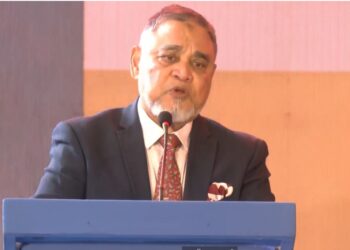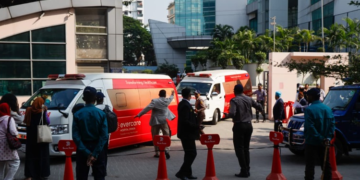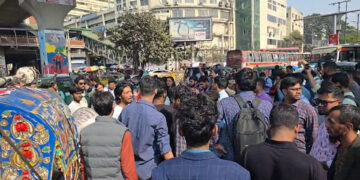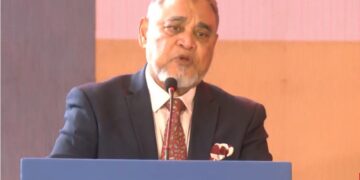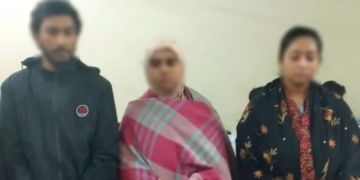Highlights:
-
Mirza Fakhrul accuses govt of executing Nizami, Mir Quasem & Salauddin Quader in false cases.
-
BNP claims 60 lakh false cases, 20,000 killings & disappearances.
-
“A dark chapter in national history,” says Fakhrul.
-
Calls for a free, democratic Bangladesh — free from foreign control.
-
Recalls Ziaur Rahman’s role in restoring press freedom.
-
Urges unity for a fair 2026 election and revival of democracy.
BNP Secretary General Mirza Fakhrul Islam Alamgir has claimed that many Islamic scholars and political figures, including Jamaat-e-Islami leader Motiur Rahman Nizami, Mir Quasem Ali, and former BNP Standing Committee member Salauddin Quader Chowdhury, were sentenced to death in false cases.
Speaking on Saturday (October 25) at an event marking the 21st founding anniversary of the daily Naya Diganta, held at the Bangladesh Shilpakala Academy, Fakhrul made strong remarks about political oppression and the state of democracy in Bangladesh.
He said,
‘গণতন্ত্রকামী শক্তিগুলোর ওপর ফ্যাসিবাদী সরকারের দমন-পীড়নের কথা জাতি ভুলে যায়নি। ৬০ লাখ কর্মীর নামে মিথ্যা মামলা, ২০ হাজারের বেশি নেতাকর্মী হত্যাকাণ্ড ও গুমের শিকার হয়েছেন। জামায়াতে ইসলামীর আমীর মাওলানা মতিউর রহমান নিজামী, নয়া দিগন্তের মালিক মীর কাসেম আলী, সালাউদ্দিন কাদেরসহ অনেকে আলেম-ওলামাকে মৃত্যুদণ্ড দেওয়া হয়েছে মিথ্যা মামলায়। এসব এই জাতির ইতিহাসে কলঙ্কজনক অধ্যায়।’
Translation: “The nation has not forgotten the fascist government’s repression of pro-democracy forces. False cases have been filed against 6 million workers, while over 20,000 leaders and activists have been killed or disappeared. Jamaat-e-Islami Ameer Motiur Rahman Nizami, Naya Diganta owner Mir Quasem Ali, and Salauddin Quader, among others, were given death sentences in false cases. These are shameful chapters in the nation’s history.”
Fakhrul further added,
‘এই দেশবাসী একটি স্বাধীন ও গণতান্ত্রিক বাংলাদেশ চায়—এমন বাংলাদেশ, যা কোনো বিদেশি শক্তির নিয়ন্ত্রণে নয়, জনগণের ইচ্ছায় পরিচালিত হবে।’
Translation:“The people of this country want an independent and democratic Bangladesh — a Bangladesh that is not controlled by any foreign power but is governed by the will of its people.”
Reflecting on past political eras, the BNP leader stated,
‘১৯৭৫ সালের বাকশাল শাসনের সময় ছিল সংবাদপত্রের স্বাধীনতা হরণের দুঃসময়। তখন সাংবাদিকরা বেকার হয়েছিলেন, অনেকে রাস্তায় হকারি করেছেন। পরে শহীদ প্রেসিডেন্ট জিয়াউর রহমানই সংবাদপত্রের স্বাধীনতা ফিরিয়ে আনেন, বহুদলীয় গণতন্ত্র পুনঃপ্রতিষ্ঠা করেন।’
Translation: “During the BAKSAL regime in 1975, press freedom was destroyed. Journalists lost their jobs; some were forced to sell newspapers on the streets. Later, it was martyred President Ziaur Rahman who restored press freedom and reintroduced multi-party democracy.”
Read More: Exam Candidate Caught Cheating Through Coughing, Hidden Device Recovered
Turning to the upcoming national election, Fakhrul remarked,
‘২০২৬ সালের ফেব্রুয়ারির মধ্যে নির্বাচনের তারিখ ঘোষণা হয়েছে। সংস্কার সনদে স্বাক্ষরিত দলগুলোর ঐক্যের মাধ্যমে আমরা একটি গ্রহণযোগ্য, অংশগ্রহণমূলক নির্বাচনের পরিবেশ সৃষ্টি করতে চাই। গণতন্ত্রের পুনরুদ্ধারে সবাইকে নির্বাচনে অংশগ্রহণের আহ্বান জানাচ্ছি।’
Translation:“The date for the next national election has been set for February 2026. Through the unity of parties that signed the Reform Charter, we aim to create an acceptable and participatory election environment. We call on everyone to take part in the election to restore democracy.”
ভুল করেছেন? ব্যর্থ হয়েছেন? ঠিক এখান থেকেই শুরু হোক আপনার গ্রোথ
Mirza Fakhrul Islam Alamgir’s remarks at the Naya Diganta anniversary event reflect the BNP’s enduring criticism of the ruling government’s actions toward opposition leaders and religious figures.
His statements reignite debate over Bangladesh’s political justice system, human rights, and the legacy of wartime trials. By invoking the names of executed leaders such as Motiur Rahman Nizami, Mir Quasem Ali, and Salauddin Quader Chowdhury, Fakhrul sought to portray these cases as symbols of political revenge rather than justice.
At the same time, his emphasis on restoring democracy, press freedom, and conducting a fair, participatory election in 2026 underlines BNP’s broader political message that Bangladesh’s sovereignty and democratic integrity must be reclaimed through unity, reform, and people’s will.
Share via:

